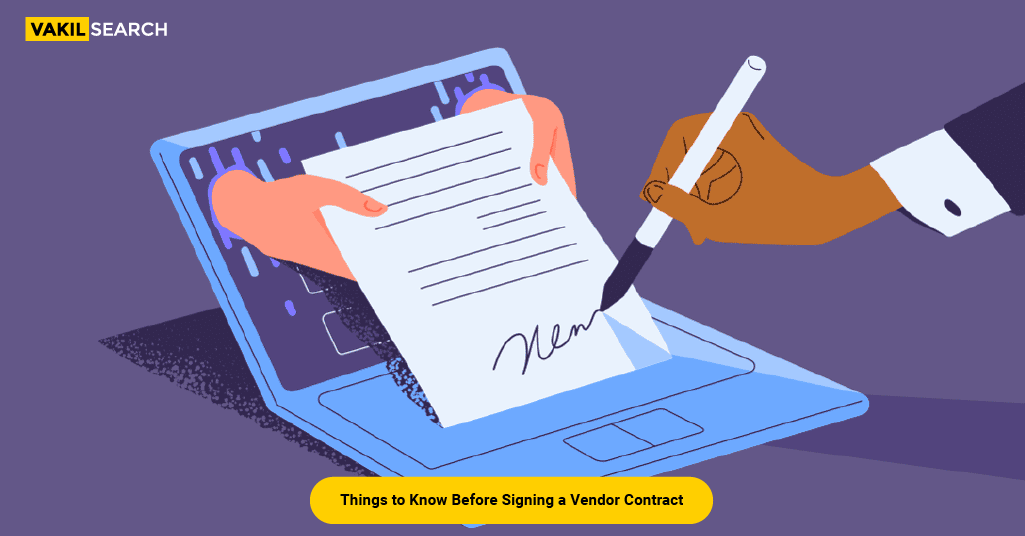It is crucial for businesses to fully comprehend the terms and conditions of Before Signing a vendor contract before signing one. While a poorly constructed contract might result in disagreements and financial losses, a well-written vendor agreement can aid in the development of a mutually beneficial relationship.
Vendor Agreement Format
A vendor agreement is a contract that outlines the terms of a business relationship between a vendor and a client. The format of the agreement may vary based on the type of goods or services, sector, and needs of the parties. But, a standard vendor agreement should include the following sections:
- Title: Clearly indicate that it’s a vendor agreement
- Background: Introduce parties, roles, responsibilities, and purpose
- Definitions: Define terms and jargon to avoid confusion
- Scope of Work: Outline vendor’s services, deliverables, timelines, and performance standards
- Payment Terms: Detail pricing, invoicing, payment, milestones, and instalment payments
- Confidentiality and Security Measures: Establish vendor’s confidentiality obligations for protecting sensitive information, trade secrets, and intellectual property
- Ownership of Intellectual Property: Specify ownership of any intellectual property used or produced by the vendor
- Terms of Termination and Renewal: Describe the steps and circumstances for ending or renewing the agreement, including notice requirements and termination rights
- Performance Metrics and Reporting Requirements: Specify reporting requirements, such as deadlines and formats
- Liability and Indemnity: Detail parties’ obligations for liability and indemnity, including any restrictions or exclusions
- Governing Law and Jurisdiction: Outline the laws and jurisdictions that will control the interpretation and enforcement of the agreement.
Things to Know Before Signing a Vendor Contract:
- Scope of Work: Clearly outline services/goods, deadlines, and performance requirements in detail.
- Payment Terms: Establish fair pricing, invoicing, payment schedule aligned with financial plan.
- Confidentiality and Security: Specify measures to protect sensitive information, trade secrets, and intellectual property.
- Intellectual Property Ownership: Specify ownership rights and limitations on the use/transfer/licensing of intellectual property.
- Termination and Renewal Terms: Layout guidelines for ending the contract, notice requirements, and renewal terms if applicable.
- Performance Metrics and Reporting Obligations: Include metrics and reporting obligations to ensure accountability.
FAQs:
Can I negotiate the terms of a vendor contract?
Yes, vendor contracts are negotiable. It is important to carefully review the terms and conditions and negotiate any changes or additions that are favorable to your business. Seek legal advice, if needed, to ensure that the negotiated changes are legally binding and protect your interests.
What should be included in the payment terms of a vendor contract?
Your payment terms must include pricing, invoicing, and payment schedule. Clearly specify payment amounts, due dates, and instalment payments or milestones. Make sure payment terms are fair, reasonable, and align with your business budget and cash flow requirements.
How can I protect my intellectual property in a vendor contract?
When making a vendor contract, state who owns the intellectual property and set rules for how it can be used, transferred, and licensed. Make sure to include parts about confidentiality and ownership to keep your creations safe.
Why is it important to include performance metrics and reporting requirements in a vendor contract?
To track vendor's performance, a contract should have metrics and reporting criteria. This helps fix issues quickly and assess if the vendor follows the standards. It also promotes responsibility and transparency in the partnership.
Also, Read:
- Contract Termination Causes
- Vendor Contract Policy in Employment Law
- Importance of Vendor Agreements in India

